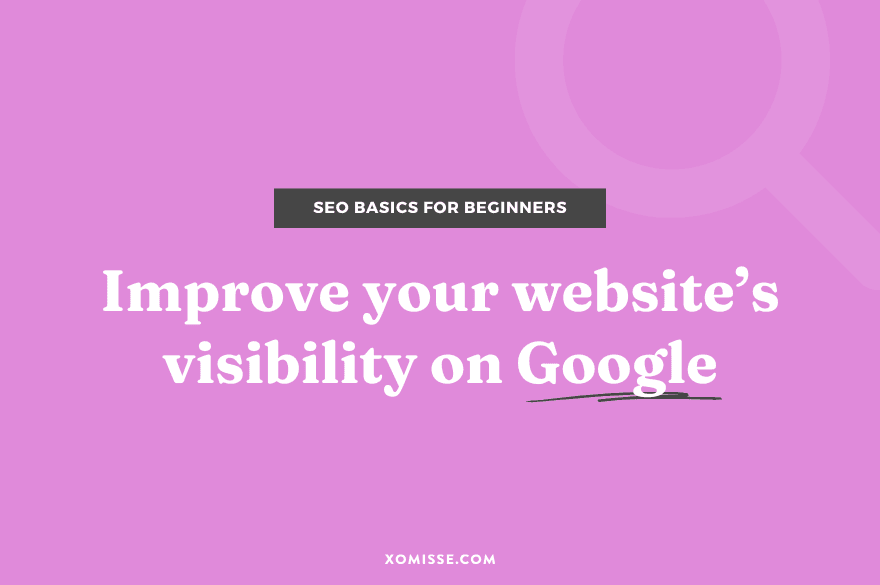If you are like many entrepreneurs just starting out, you may find yourself overwhelmed by the concept of SEO (Search Engine Optimisation) and wondering if it’s something you really need to focus on right now.
The good news? SEO doesn’t have to be complicated to be effective. A few simple actions can make a noticeable difference in your website’s visibility, helping more people discover your business online.
In this SEO basics for beginners post, we’re breaking down SEO into beginner-friendly steps that don’t require any technical expertise.
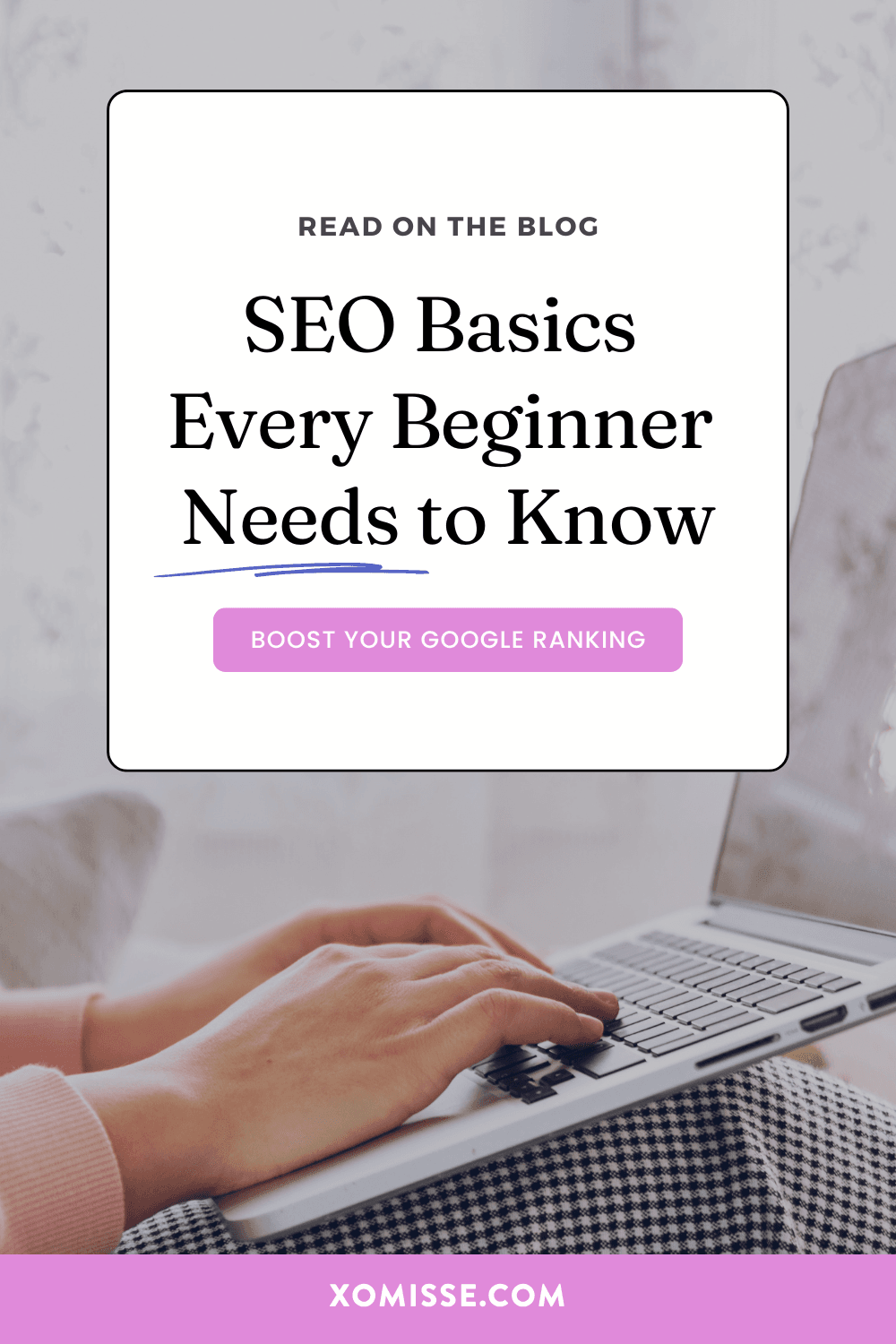
SEO fundamentals: learning the basics
Before we dive into the actions, let’s go over some of the basics of SEO.
Imagine you’re running a recipe website and someone is searching for “easy vegetarian recipes.”
Search engines, like Google, are designed to connect users with the information they are looking for.
How do search engines work?
Search engines use “bots” or “spiders” to scan websites across the internet. They gather information about each page and organise it in a giant database or “index”. When someone searches for a topic, the search engine pulls relevant pages from this index.
Your goal with SEO is to help search engines understand what your site is about, so they’re more likely to show it.
How do search engines choose which sites to show?
Let’s continue with the “easy vegetarian recipes” example.
When a search engine processes that request, it quickly scans its index to find the most relevant and trustworthy pages.
They look for several factors: Is the website’s content closely related to “easy vegetarian recipes”? Is the website easy to navigate and mobile-friendly? Does it load quickly? And does it have other sites linking to it, showing it has credibility?
If it fits this criteria, then the search engine will display this website on the results page.
How do search engines decide which websites to show first?
Similar to social media, search engines rely on algorithms to decide which results to show based on what they believe best answers the searcher’s question.
The sites that show up on the first page usually meet specific criteria: they’re relevant to the search term, contain useful information, are trusted by others and are optimised for performance.
This is where keywords come in. If your recipe website naturally includes phrases like “easy vegetarian recipes” or “quick plant-based meals”, the search engine is more likely to see it as relevant and rank it higher.
The different types of SEO
As you may have noticed above, there’s many different factors that these algorithms take into consideration.
As a result, we tend to divide SEO into three different types: On-Page SEO, Technical SEO, and Off-Page SEO.
- On-page SEO focuses on optimising the content and elements on individual pages to make them more relevant and user-friendly.
- Technical SEO involves improving behind-the-scenes aspects of your website that help search engines crawl and index your site more effectively.
- Off-page SEO is all about building your site’s reputation and authority, often by earning backlinks from other reputable websites.
With this in mind, let’s move on to the actions you can take to improve your SEO.
The SEO Starter Checklist
50+ easy steps to rank on Google, increase website traffic and boost your visibility as a new business
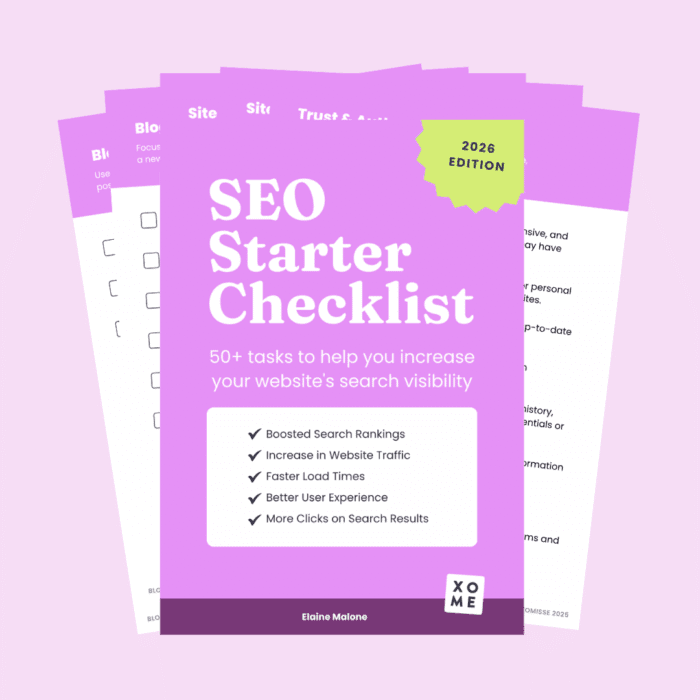
On-Page SEO
On-page SEO is all about optimising individual pages on your website to help them rank higher and attract the right audience. Here are a few essential elements to focus on when it comes to On-Page SEO:
1. Choosing the right keywords
Keywords are the terms and phrases people type into search engines to find information. They are the bridge between what people are searching for and the content you provide, helping search engines match your website with the right audience.
The first place to start when it comes to keywords is to think about the phrases your customers might type into Google to find your business.
For example, if your recipe website specialises in vegetarian-based meals, phrases like “easy vegetarian recipes” or “quick plant-based meals” could be great keywords to include on your website.
Once you’ve identified these terms, incorporate them naturally into your content and across your website.
2. Utilising Title Tags and Meta Descriptions
Two places you really want to use keywords is in your title tag and meta description.
The title tag is the main title of your page, and it shows up in search results. A clear, concise title (under 60 characters) that includes your main keyword can help users and search engines understand what your page is about.
The meta description is a short summary that appears below your title in search results. While it doesn’t directly impact rankings, a well-written meta description can entice people to click. Aim to keep it under 160 characters, briefly summarising what users will find on the page and why it’s valuable.
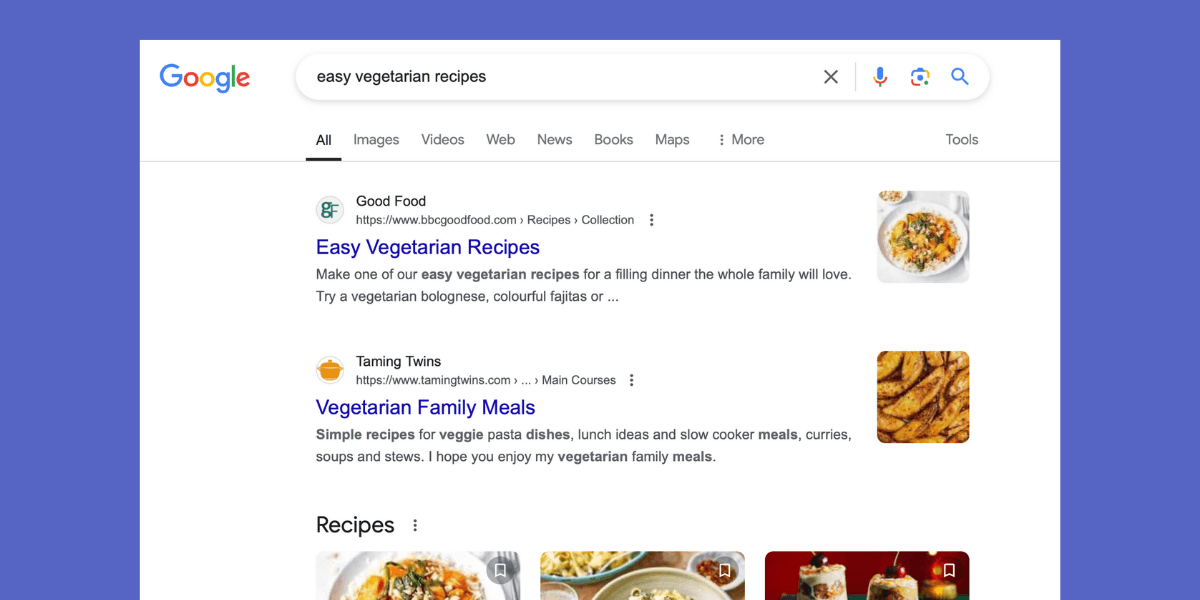
3. Structuring your content correctly
Structuring your website content is important too. One simple way to do this is to use headings to break up your content and make it easy to scan.
Your main title, or H1, should clearly tell readers (and search engines) what the page is about. Then you can use H2, H3 and so on headings for subtopics to organise your content in a logical way.
For example, this post could be:
- H1: Beginner’s Guide to SEO
- H2: What is SEO?
- H3: Understanding Keywords
Using these headings strategically not only makes your page more readable but also signals its structure to search engines.
Focus on quality content
One of the best SEO tips I can give you? Write for people first, search engines second. Quality content that answers questions, provides insights, or solves a problem is more likely to rank well over time.
This goes for content throughout your website as well as your blog. Think about what your audience is looking for and focus on delivering value.
Search engines are smart enough to pick up on natural language, so use your keywords naturally and keep your reader in mind.
Technical SEO
Moving onto the next type of SEO – Technical. Technical SEO can sound intimidating but you don’t need to be an expert to make a few small improvements to your site.
Here are 3 quick wins when it comes to technical SEO:
1. Improve your site speed
Website visitors are quick to leave a slow-loading page, which means page speed is crucial for user experience and therefore, SEO. Search engines prioritise fast sites because they provide a better experience.
Try using a free tool like Google PageSpeed Insights to check your site’s speed. If your site is on the slower side, consider compressing images, reducing large files, or talking to your hosting provider about speed optimisation options.
2. Make it mobile-friendly
We already know that the majority of people are browsing on mobile devices, so having a mobile-friendly site is a must. Thanks to Google’s mobile-first indexing, your mobile site will impact how your site ranks overall.
Ensure your website is responsive (adjusts well to different screen sizes) and easy to navigate on all devices. If you’re unsure how your site looks on mobile, try Google’s Mobile-Friendly Test tool for a quick check.
3. Optimise your images
Images can make your site more engaging, but large files can slow it down. To keep your site fast, resize and compress your images before uploading.
Additionally, add descriptive “alt text” to each image. Alt text helps users and search engines understand what an image is, which is especially useful if the image isn’t loading or if somebody is using a screen-reader for accessibility purposes.
The SEO Starter Checklist
50+ easy steps to rank on Google, increase website traffic and boost your visibility as a new business

Off-Page SEO
As mentioned, off-page SEO is all about building your site’s reputation and authority. To do this, you’re going to need backlinks.
Backlinks are links from other websites to yours. They act as “votes of confidence” for your website in the eyes of search engines. When reputable sites link to your content, it signals that your site is trustworthy and valuable.
Building backlinks can be difficult and there are many ways to do so. Since you’re just getting started, I’d recommend focusing on these three things:
- Providing valuable content that people will naturally want to link to
- Networking with other people within your niche that you could potentially to collaborate with
- Look at contributing content to other websites (guest posting)
With backlinks, quality is more important than quantity so focus on earning links from reputable sites.
Two tools to help with SEO as a beginner
There are hundreds of free and paid SEO tools available that will help with your SEO efforts.
Before you invest time and money into these, I would suggest getting a free account on Google Analytics and Google Search Console.
Google Analytics will give you insights into your website traffic. You can see which pages are most popular, how visitors found your site, and which keywords are driving traffic.
While Google Search Console will let you monitor your site’s presence in Google search results. It shows you which keywords your site is ranking for, where it’s appearing in search results, and if there are any technical issues to be fixed.
Conclusion
There you have it! You should now have a basic understanding of SEO and should be able to start optimising your website for visibility and growth.
SEO can be overwhelming, focus on taking one simple step at a time and gradually build from there. It’s an ongoing process!
If you’re ready to dive in deeper, check out our SEO Guide with more insights on getting on Google’s good side!
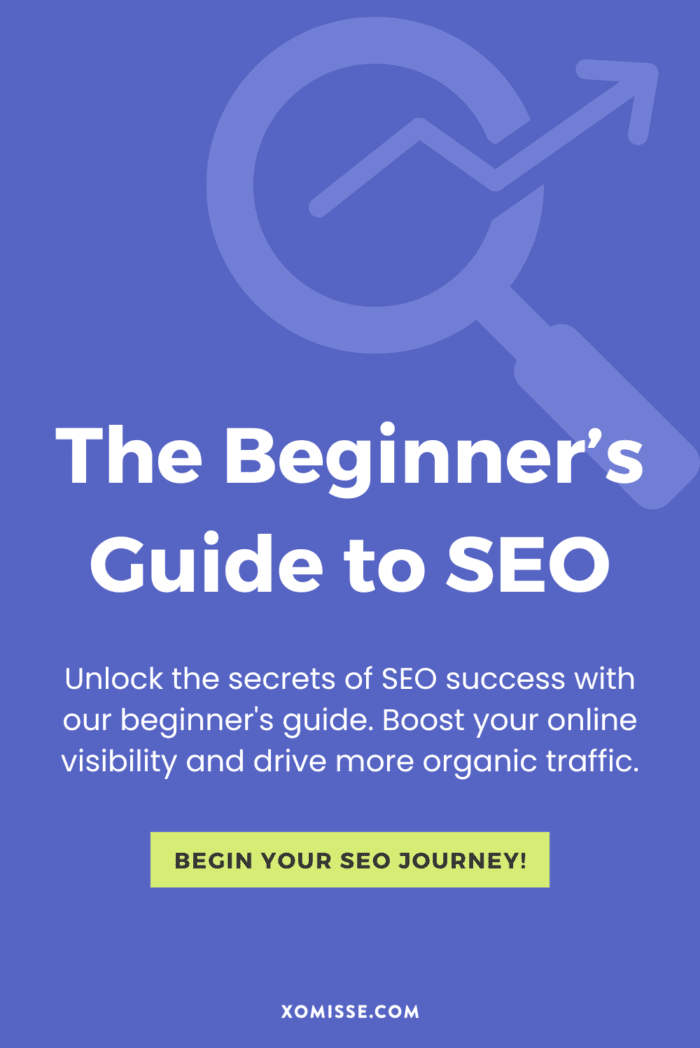
The Beginner’s Guide to SEO
Learn the fundamentals of SEO and drive more organic traffic to your website, and download your FREE SEO Checklist…
